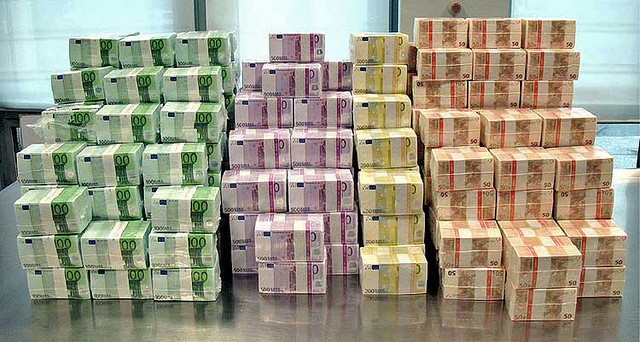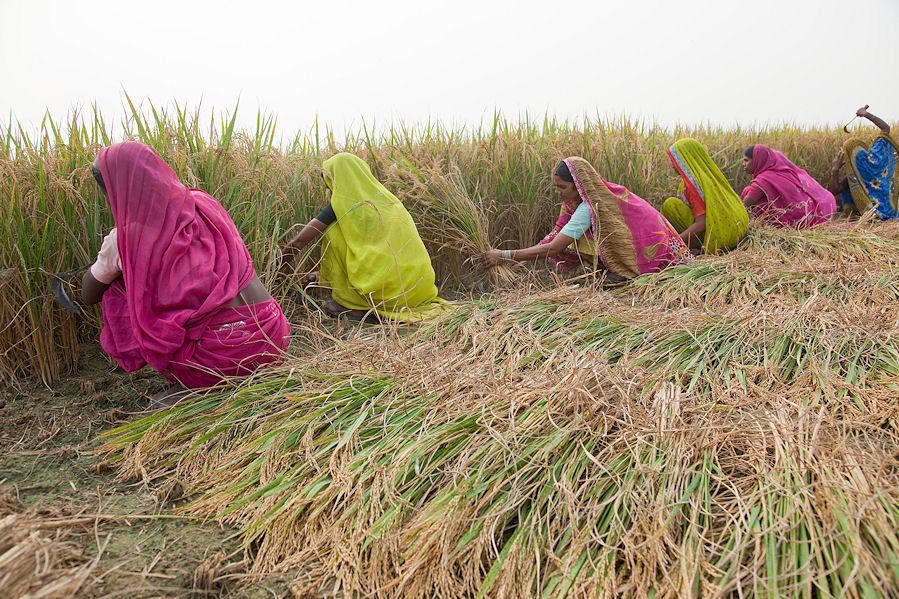Last week I attended a meeting of the High Level Steering Board of the European Innovation Partnership for Agricultural Productivity and Sustainability (EIP-A) representing the European Association for Agricultural Economists. The meeting was jointly organised by Dacian Ciolos, Commissioner for Agriculture and Rural Development, and Maire Geoghegan-Quinn, Commissioner for Research and Innovation.
It brought together 42 people representing member states, the farm and food sectors, NGOs, representatives from existing Joint Programming Initiatives in the food and agriculture area as well as scientific associations and the university sector. The purpose of the meeting was to provide input for drawing up the EIP Strategic Implementation Plan (SIP) and the agenda was organised around four questions relating to priorities, bottlenecks, mobilising farmers and delivery mechanisms and funding.… Read the rest
Paolo De Castro on the CAP Reform Process
Rose O’Donovan, editor of the excellent Agra-Facts, has interviewed Paolo De Castro, CAP reform veteran and currently holding a key role as Chairman of the European Parliament’s agriculture committee. Worth a watch.
… Read the rest
Implications of the European Council MFF agreement for the agricultural environment
This is a shortened version of a post which was first written for the Institute for International and European Affairs EnvironmentNexus blog
From the perspective of the agricultural environment, there are three elements in the European Council conclusions on the EU’s Multi-annual Financial Framework on 7-8 February which should be noted.
The first element is the general commitment that climate action objectives will represent at least 20% of EU spending in the period 2014-2020 and should be reflected in the appropriate instruments to ensure that they contribute to strengthening energy security and building a low-carbon, resource efficient and climate resilient economy.… Read the rest
What the proposed MFF has for agriculture?
Herman Van Rompuy, President of the European Council introduced the acceptance of the new MFF yesterday on his Twitter page by writing that
Deal done! The European Council has agreed on MFF for the rest of the decade. Worth waiting for.
Although this is not the final agreement as the European Parliament still has to confirm the Council decision, it is highly unlikely that the EP risks the hard-fought agreement reached at the Council. Therefore, the playing arena for agriculture in the next seven years is set in the final conclusions published by the Council.
In general, the deal reached limits the maximum possible expenditure for a European Union of 28 Member States (with Croatia’s accession this year) to €960 billion in commitments, corresponding to 1.0% of the EU’s GNI.… Read the rest
Will the MFF be agreed this week?
Heads of State and Government meet Thursday and Friday 7 and 8 February in the first European Council meeting of 2013. A second attempt to reach agreement on a Multi-annual Financing Framework (MFF) for the 2014-2020 period is on the agenda. Prime Ministers and European Ministers have been criss-crossing Europe for the past few weeks to drum up understanding and support for their various national positions, with Merkel and Hollande meeting in Paris today Wednesday on the day before the summit begins.
Herman van Rompuy, the Council President, is playing his cards very close to his chest. Unlike prior to the earlier failed attempt to reach agreement in November last year, a third draft of the Council conclusions (HvR-III) will not be formally circulated before the meeting (see this post for commentary on HvR-I and this post for commentary on HvR-II).… Read the rest
The MFF numbers – where we stand
Later this week (7-8 February), the European Council will meet for a second time to try to agree the parameters for the EU’s Multi-annual Financial Framework (MFF) for the 2014-2020 period. The prospects for success remain uncertain; tomorrow I will review the main outstanding issues and the likely flashpoints when the Heads of State and Government meet.
The purpose of this post is to present the numbers as published in successive drafts of the MFF since the Commission’s original proposal in June 2011 and a comparison with the numbers in the 2007-2013 MFF. This provides the context to evaluate the blueprint which European Council President Herman van Rompuy will put before the leaders and any potential agreement.… Read the rest
The development interest in the CAP reform debate
Olivier De Schutter, the UN Special Rapporteur on the Right to Food, called last week for MEPs to take into account the impact on developing countries when voting on amendments to the draft CAP regulations post-2013 (see also here). Among other issues, he called on MEPs to support the views of the European Parliament’s Development Committee, which voted unanimously in favour of a mechanism to monitor the CAP’s development impacts (look for Amendment 4 inserting a new Article 110(a)). In the voting last week, COMAGRI MEPs declined to do this.
De Schutter had previously issued a report with some controversial recommendations on how this round of CAP reform could help to realise the right to food in developing countries.… Read the rest
Who is happy with EP COMAGRI’s recent vote?
After more than a year of debate, the EP Agriculture and Rural Development Committee began adopting several amendments to the future CAP legislation on 23 and 24 January but approval remains far from certain.
Many criticisms have been made since the vote. The agro-lobby is talking about a melt-down of the urgently needed reforms and greening, reacting on the COMAGRI proposal to allow farmers to ‘opt out’ of mandatory greening requirements and still get at least 70% of the direct payments as well as watering down every single measure with so called ‘equivalents’.
Environmental campaigners also criticised the vote, alleging that the debate was dominated by agricultural interests.… Read the rest
Following the negotiations on the Direct Payments Regulation
COMAGRI will vote on compromise amendments to the Commission’s proposals for the four main CAP regulations this week. To understand the dynamics of the legislative process, it is helpful to be able to see the positions of the main institutions side-by-side. I have constructed a four-column spreadsheet table showing, article by article, the positions of the main actors as we know them to date for the direct payments regulation (download the file to your computer by clicking File, Download in the upper left of the Google Drive document when the link opens). The four columns show, for each article:
-
The Commission’s proposal October 2011
The COMAGRI rapporteur’s amendments May 2012
The Council’s position as summarised in the Cyprus Presidency document December 2012
The COMAGRI compromise amendments Jan 2013
I have only had the time to construct this table for the direct payments regulation so far.… Read the rest
The significance of Rule 70 for CAP reform negotiations
To understand the possible timing of the CAP reform negotiations it is crucial to understand the new decision-making process under the Lisbon Treaty involving both the Parliament and the Council. In a recent post, I set out my understanding of the process, based on the assumption shared by most commentators (for example, see this Brussels briefing) that the Parliament would vote in plenary on its position on CAP reform in March, thus making a first reading agreement impossible.
I now think another scenario is more likely, namely, that COMAGRI will appoint its formal trilogue negotiating team at its next meeting in a week’s time based on the mandate arising from the voting on the compromise amendments.… Read the rest




